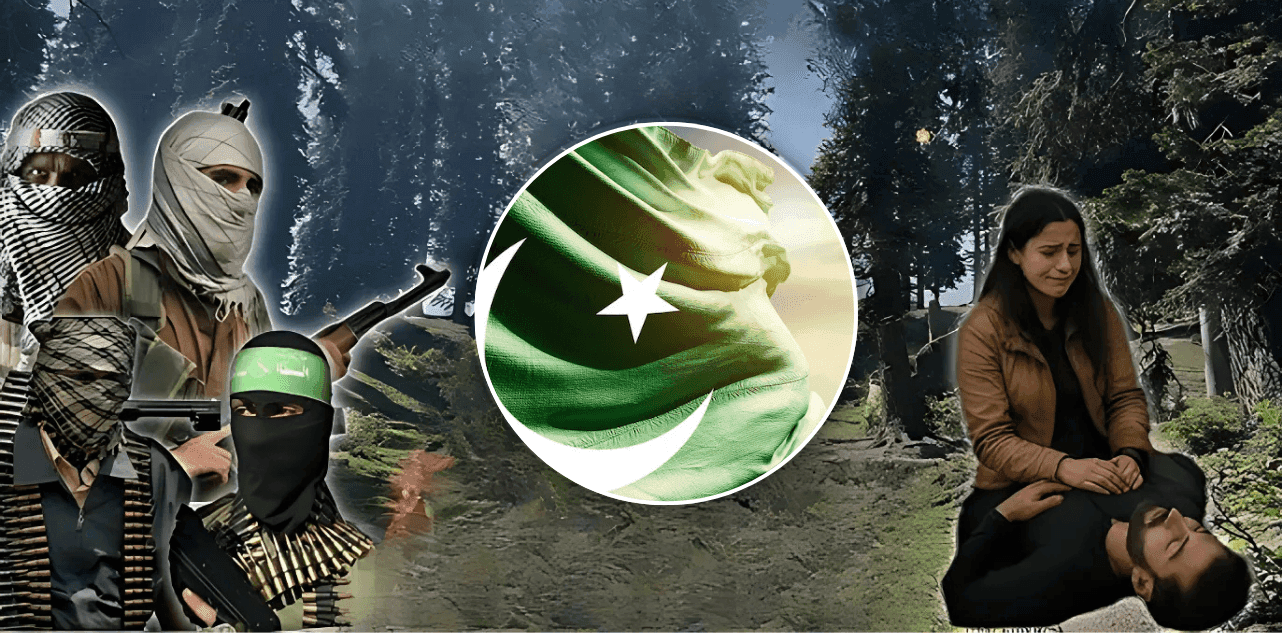Monday 16 February 2026
Pakistan's Denial in Pahalgam Attacks has Zero Credibility
Share

Denial has always remained Pakistan's modus operandi, be it the Kargil War of 1999; the Mumbai terror attacks in 2008; or, now the Pahalgam terror incident. Despite initial denials, Pakistan's U-turn keeps it in a Catch-22 situation.
Just after the Pahalgam terror attacks, which saw the killing of 26 tourists, Pakistan responded by denying its involvement. It tried to suggest that the five terrorists, who unleashed havoc on April 22, were freelancing militants, for whom Islamabad should not be held accountable.
This is not the first time that Pakistan has looked desperate to disassociate itself from the terror attacks aimed at destabilizing India.
Denial has remained Pakistan's old playbook. To cite a previous instance, during the Kargil War of 1999, Pakistan denied its involvement. It stressed that the "Kashmiri freedom" fighters had taken control of several hilltops in Kargil. However, its army chief, Asim Munir, in a statement, underscored the Pakistani army's 'bravery' in 1948, 1965, 1971, and the Kargil.
Munir's exact statement was, "Be it 1948, 1965, 1971 or the 1999 Kargil war, thousands of “Shuhadas” (martyrs) have sacrificed their lives for the country and nation."
Again, after the 2008 Mumbai terror attacks, Pakistan said it was not given any 'tangible proof' that Ajmal Kasab was a Pakistani.
Later, to counter Islamabad's stand, Dawn News reported, "Pakistani authorities, during the course of their own investigations into the Mumbai carnage, have established the identity of the only surviving terrorist, Ajmal Kasab, as a Pakistani national.
Coming to the latest incident, the Pakistani leadership denied its involvement in the Pahalgam terror attacks. Defence Minister ruled out Pakistan's involvement, saying, "Pakistan has no link with the Pahalgam terror attack."
He distanced Islamabad from the bloodshed, as he called the violence “home-grown” and part of a "wider rebellion" against New Delhi. Asif said, "These are not acts of foreign interference but local uprisings." The reaction came a day after a terror attack rocked one of the most iconic locations in Jammu and Kashmir. Finally, Pakistan admits...
While Pakistan is yet to counter its stand, Khawaja Asif has admitted Pakistan's involvement in promoting terrorism, including funding and backing terrorist groups.
In a conversation, Asif says, "We have been doing this dirty work for the United States for about 3 decades and the West, including Britain”. Pak Minister deflects terrorism charges.
Asif indirectly admitted that Pakistan as a country has been ‘supporting and funding’ terrorism for three decades. Asif went on to say that it was a mistake that the country was suffering from.
“Well, we have been doing this dirty work for the United States for about three decades, and West, including Britain,” Asif is heard telling British news channel Sky News after anchor Yalda Hakim asked you to admit that Pakistan has a long history of funding and supporting terrorist organizations.
Asif's remarks came amid escalating tensions and Pakistan's downgraded diplomatic relations with India after the worst-ever terror attack on civilians in Jammu and Kashmir's Pahalgam that killed 26, mostly tourists, earlier this week. The anchor responds, so, that is your argument and the minister responds, “...that was a mistake and we suffer for that. And that is why you are asking it to me.” Tourists were attacked in Kashmir earlier, too, but not in such big numbers. Pak minister went on to say that if Pakistan “had not joined US war against the Soviet Union and later on after 9/11, Pakistan had an unimpeachable track record.”
In the same interview, Asif told that the worsening ties between the two neighboring nations post the Pahalgam terror attack might lead to an all-out India-Pakistan war.
The Pahalgam terrorist attack was carried out in the fabled Baisaran meadow of Pahalgam on April 22, a day when United States Vice President JD Vance was in India and Prime Minister Narendra Modi was on a state visit to Saudi Arabia.
India responded by deciding to shut the Integrated Check Post (ICP) at Attari in Amritsar along the India-Pakistan border in Punjab immediately. India also decided to suspend the Indus water treaty until Pakistan credibly and irrevocably abjures its support for cross-border terrorism.
The decisions to downgrade diplomatic ties with Pakistan in view of cross-border links to the Pahalgam terrorist attack were taken in the Cabinet Committee on Security (CCS) meeting chaired by Prime Minister Narendra Modi on April 23.
Pakistan responded with countermeasures as the militaries of both countries remain on high alert with widespread reports suggesting a possibility of punitive strikes by India in response to April 22 Pahalgam terror attack.
Islamabad has, however, said it ‘rejects’ India's decision to suspend the Indus Waters Treaty after the Pahalgam terror attack, adding that it's the lifeline for 240 million Pakistanis.
The Resistance Front (TRF), an offshoot of Pakistan-based Lashkar-e-Taiba, is believed to be behind attack, a claim that has not yet been able to verify. Some reports even suggested that a top Lashkar-e-Taiba commander, Saifullah Kasuri, alias Khalid, is believed to be the ‘mastermind’ of the attack. There has not been any official word on these claims yet.
Newsletter
Stay up to date with all the latest News that affects you in politics, finance and more.